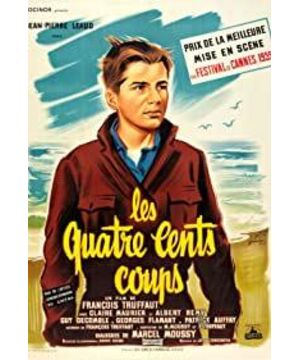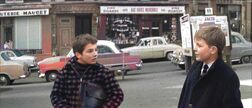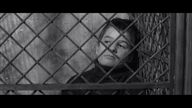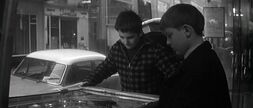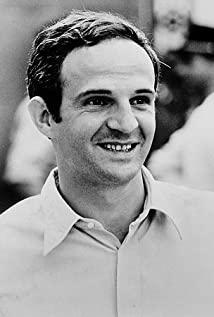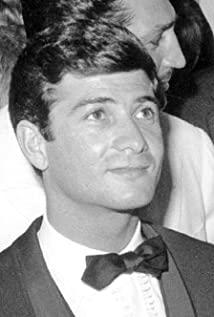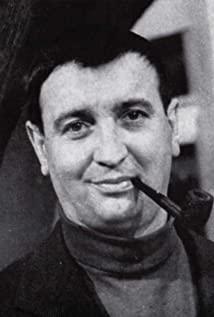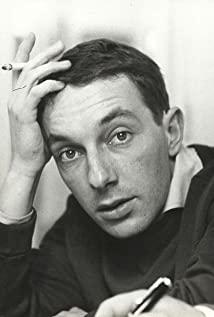I saw a sentence a few days ago: "It's good to be rich and it's good to be healthy. But it's better to be loved.
I believe this story is true. Because the real world is often more cruel than this story.
In a At the beginning, the film recounts the rebellion of a child, making people think that this is just the story of how a hopeless child is hopeless. Tony is always in trouble, always running away, not listening to teaching, and "bad friends" fooling around. In the first half, the audience's vision is the parent's vision, that is, the opposite of the child. In the second half, with the absence of parents and the school, the perspective gradually shifts to the child. Only then did we discover that the sadness behind these naughty and mischievous Aggrieved, helpless and sad, pain and struggle.
From Tony's indifferent confession to the psychiatrist, we know the fact that Tony's father is not his biological father; his mother didn't want him originally; his mother had an affair. He is a child who is not needed by his family, a child who is not loved. He longs to escape from the family. He also sees it as a source of pain for a family that sees him as a burden.
Once home, he burns Good coal stove, set the tableware, everything is skillful, and the house is empty. Three plates, three pairs of knives and forks, three spoons. We know there are three people, but the black and white pictures and the unpleasant background music make these empty plates scary Can it really be used?
The corridor is dirty and the room is small. The child sleeps in the outer room, wearing pajamas with a big hole, and sleeping in an old sleeping bag. The parents sleep in a large room with a dazzling dresser and white quilt. The mattress was soft, the mother's socks were thrown away when it was dirty, she was wearing a mink coat, and the father was well-dressed, and no one cared that the child had only an unseemly coat and ill-fitting trousers.
The parents quarreled with each other and poured their grievances on him, as if he had caused their unhappiness. As if he were the source of unhappiness.
Throughout the film, Tony is expressionless. The expressionless expression of disdain for the home school is also his declaration: no one has the right to hurt him. He was lonely, lonely and stubborn. He lost his emotional sensitivity, and numbed all his other emotions to the numbness of pain.
Therefore, when we see his only cry and his two smiles, we understand the despair and hope of this child.
The only time Tony cried was on his way from the makeshift detention center to the juvenile detention center. He was the last to get into the car, clutching the bars of this small prison with both hands, and he saw the lights, traffic, and pedestrians in Paris at night. The car passed the streets that he and his classmates had wandered through when he skipped class, the roofs that he climbed, the alleys that he drilled through, and the joy of liberation was no longer available. His freedom was even deprived, and in front of him was a dim juvenile detention center, a small cage, and silent loneliness. And all he could do was hold on to the iron fence with both hands. The car also passed the cinema where his parents took him that day. At that time, because of his running away from home, his mother adopted a "soft policy". Even though he was calm when faced with his mother's sudden affection, and calmly saw through his mother's perseverance, but the night he came back from watching the movie, he couldn't hide his happiness - the happiness of having a sweet family. Maybe that fake night was the happiest moment of his life, we still remember him sitting in the back seat of the car, looking at Dad and Mom, looking at Dad and Mom, jumping up and smiling Big to the ear. It was like a dream that he had been praying for for many years, and he was willing to indulge in it and never wake up.
Sitting in the prison car at this time, he remembered the words his mother said before leaving that night:
"Paris is ours!"
How sad that Paris is no longer Tony's, the boy who was cruelly treated by his family.
He burst into tears, and now his eyes were no longer stubborn and disdainful. He pity himself, he hates the world.
The last smile of Middleton in the film was the surprise smile when he saw his companions visit him at the juvenile detention center. But companions are not allowed to visit, only mothers. His smile disappeared immediately.
During the visit, the mother tried to cover up the real reason why she couldn't take Tony out with some botched reasons. Like the gossip of the neighbors, like Tony may complain about himself, like in the juvenile detention center, Tony can just work without studying and so on. The new hat on her mother's head revealed the truth long before she started telling lies.
It's just that Tony didn't expect that the true heart he had confessed to his mother would be used in this way.
He didn't expect that he would be abandoned like this.
Finally he got out of the iron net while playing football. He kept running, running, running.
Finally saw the sea. The sea he has never seen, the sea he has always longed for.
But is the sea the beginning of his future open world, or the captivity of eternal despair?
Other small tips:
- The late night lady looks for the stray puppy and asks Tony for help. Tony is happy to be needed. but was chased away by a man.
- Companion is the luckier Tony
- The little girl in the juvenile detention center
- Stealing milk
- Writing essays
- Playing centrifuges with adults
- Watching a puppet show with kindergarten children -
The juvenile detention center guards playing Ludo-
The words and actions of other children in the juvenile detention center
View more about The 400 Blows reviews


